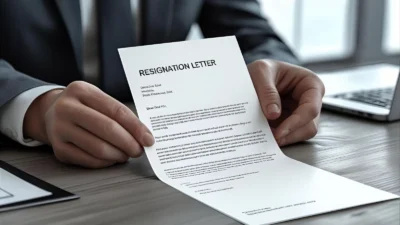We all have days when we just can’t make it to work — maybe you’re feeling sick, overwhelmed, or facing an emergency.
But when that moment comes, many people freeze and think, “What do I even say?” Knowing what to say when calling out can make things a lot less stressful and help you stay professional, respectful, and honest with your employer.
In this guide, you’ll find real-life examples, simple phrases that work, and tips for what not to say — so you can call out with confidence and peace of mind.
Sorry Generator
Be Clear and Direct About Why You’re Calling Out
Don’t overthink it. Your boss doesn’t need your full life story — just a brief, honest reason. This builds trust and shows responsibility.
✅ What to say:
- “I’m not feeling well today and won’t be able to come in.”
- “I’m dealing with a family emergency and need to take the day off.”
- “I have a migraine and need to rest today, but I’ll check in tomorrow.”
❌ What NOT to say:
- “I can’t come in, I’ll explain later.”
- “I just don’t feel like working today.”
- “I overslept, so I’m just staying home.”
Scenario: You wake up with a fever. Don’t hide it. Text or call with: “I’m running a fever and don’t want to risk spreading anything. I’ll stay home and rest today.”
Give Notice As Soon As Possible
The sooner you reach out, the better. Giving early notice helps your team adjust and shows you respect their time.
✅ What to say:
- “Hi, I wanted to let you know early that I won’t be able to come in today due to a personal issue.”
- “I’m not feeling well and wanted to give you a heads-up before the day starts.”
- “Calling out today — just wanted to inform you as early as I could.”
❌ What NOT to say:
- “Sorry for the late notice…” (if you knew earlier)
- “I forgot to let you know I’m not coming.”
- “Oh yeah, I’m not coming in today.” (last-minute texts can hurt your reputation)
Scenario: If your child wakes up sick at 6 a.m., don’t wait until 9. Message: “My child is sick this morning. I need to stay home with them today.”
Be Honest But Keep It Simple
You don’t need to go into personal or emotional details. Keep it respectful and keep it short.
✅ What to say:
- “I’m not feeling well and need to take the day to rest.”
- “I’m handling a private matter and won’t be available for work today.”
- “Something urgent has come up and I need to take a personal day.”
❌ What NOT to say:
- “I’m just super stressed out with everything.”
- “I had a rough night… just can’t deal today.”
- “I need a break from all this.”
Scenario: You’re mentally drained. Say, “I need to take a mental health day today. I’ll be back tomorrow feeling more refreshed.”
Offer a Plan If You Can
Showing responsibility by offering to follow up or complete urgent work later is a nice gesture — even if it’s not required.
✅ What to say:
- “Let me know if you need anything urgent covered today.”
- “I’ll check emails briefly in the evening, if needed.”
- “I’ll catch up on anything I miss today when I return.”
❌ What NOT to say:
- “Not my problem today.”
- “I’ll deal with it when I’m back — maybe.”
- “Hope things don’t fall apart without me!”
Scenario: You’re calling out from a customer service role. Try: “I won’t be in today, but I can check in tomorrow morning to catch up on any pending issues.”
Use the Right Tone — Friendly and Professional
Whether it’s a text, email, or phone call, how you say it matters just as much as what you say. Keep your tone polite and calm.
✅ What to say:
- “Hi [Manager’s Name], I hope you’re well. I wanted to let you know I’m calling out today due to [reason]. Thanks for understanding!”
- “Just reaching out to inform you I won’t be in today. Appreciate your support.”
- “Thanks for understanding. I’ll update you if anything changes.”
❌ What NOT to say:
- “Hey, I’m out. Deal with it.”
- “I’m calling out. End of story.”
- “I don’t really care if this messes things up.”
Scenario: Even via text, say: “Hi [Name], just letting you know I’m out today due to illness. Thanks for your support.”
Final Thoughts
When you’re not feeling your best or facing something unexpected, knowing what to say when calling out can take a load off your mind. Just be clear, respectful, and honest.
Keep it short, give notice early, and communicate like a pro. It shows you care about your role — even when you need time off. Your words matter, and choosing them well helps everyone move forward with less stress.




